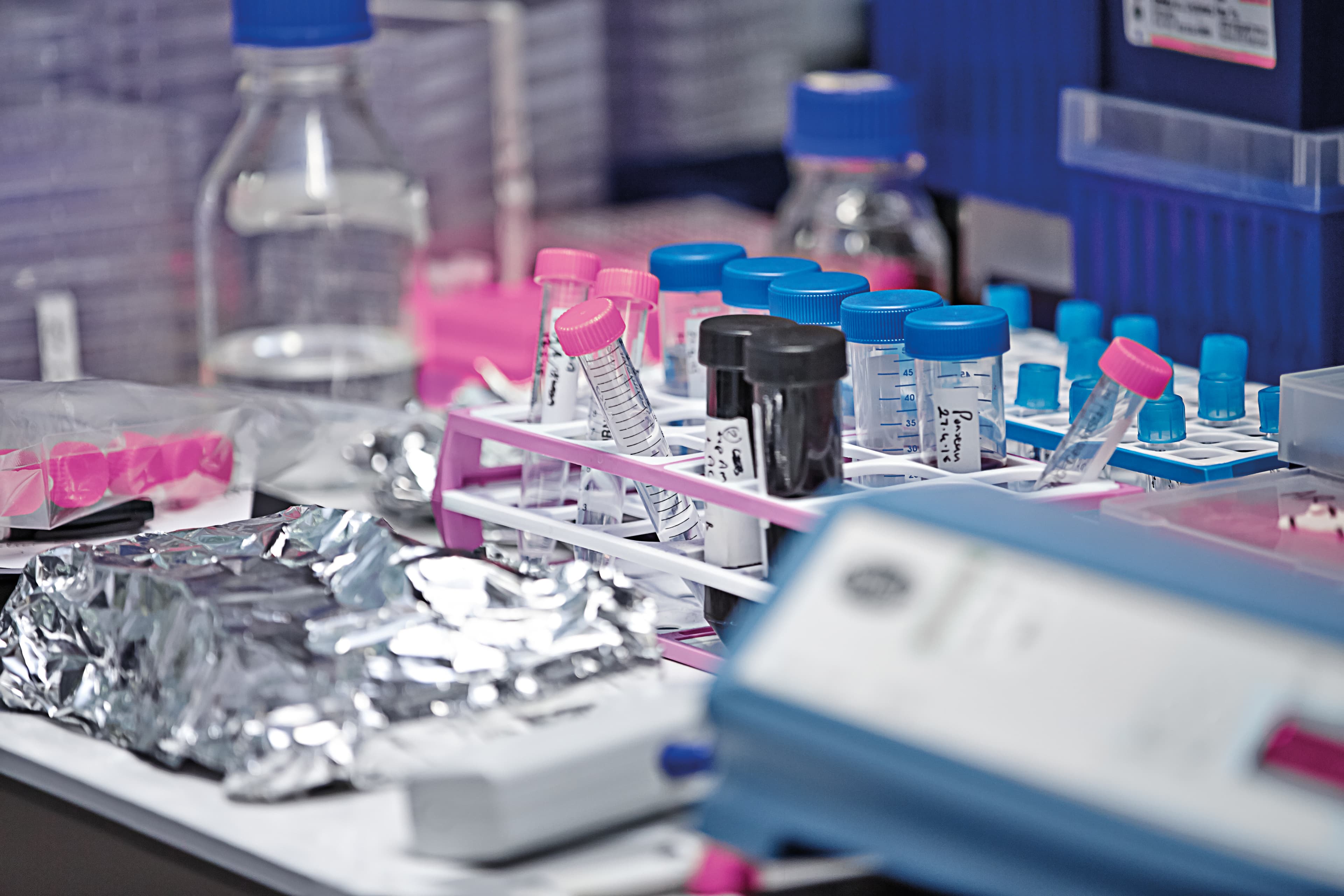
Our scientists have made vital contributions to finding new and better ways to treat, diagnose and prevent breast cancer. Below are a few of our most important discoveries.
1990s – Our researchers play a vital role in the discovery of the BRCA1 and BRCA2 genes – faults in these genes are responsible for ovarian, breast and prostate cancers. Because of this work, women with these genetic faults can take steps to reduce their risk of breast cancer.
1972 – We help build the case for breast-conserving surgery – a revolutionary idea at the time. Now it’s done routinely for early breast cancer, sparing countless women from unnecessary surgery.
1994 – Our researchers provide key evidence showing that radiotherapy after surgery helps prevent early breast cancers coming back, saving lives from the disease.
2013 – Our clinical trial shows that giving women fewer, higher doses of radiotherapy over a shorter time is effective at treating early stage breast cancer, meaning fewer trips to hospital for patients.
2015 – We support a large clinical trial, called IMPORT-HIGH trial, setting the 'gold standard' for treating women with early stage breast cancer using advanced radiotherapy techniques.
1984 – We support vital clinical trials showing the benefit of giving postmenopausal women with ER positive breast cancer a type of drug called an aromatase inhibitor instead of tamoxifen. One of these aromatase inhibitors, Anastrozole, not only prevents more breast cancers returning, but also has fewer side effects for this group of women.
1987 – Our researchers carry out crucial early research helping to develop the breast cancer drug Herceptin. Clinical trials, led from one of our clinical trials units, show the drug improves survival in women with a certain type of breast cancer. Herceptin is now helping more women survive the disease.
2013 – Our researchers play a central role in showing that tamoxifen (or anastrozole for postmenopausal women) is effective at preventing breast cancer in women at high risk from the disease. This could help reduce the number of women being diagnosed with breast cancer in the future.

From studying the biology of breast cancer cells in the lab to leading clinical trials testing cutting-edge treatments, our researchers are working hard to ensure more women survive breast cancer.

Meet people like Margaret who have experienced first-hand how our research is making a difference. The life-saving research we do wouldn't be possible without your support.
Want to find more information about our research or breast cancer?